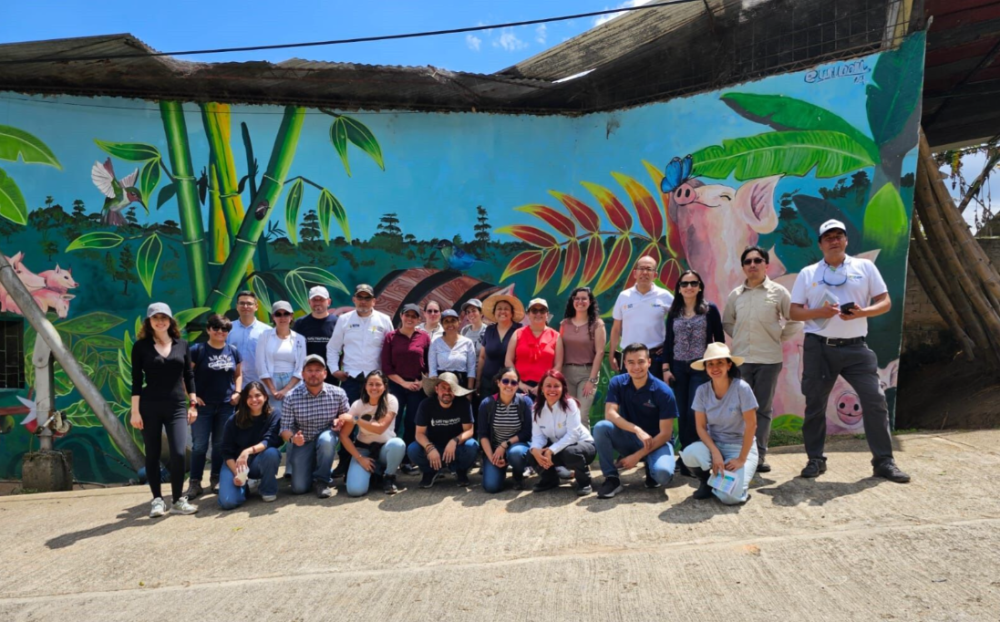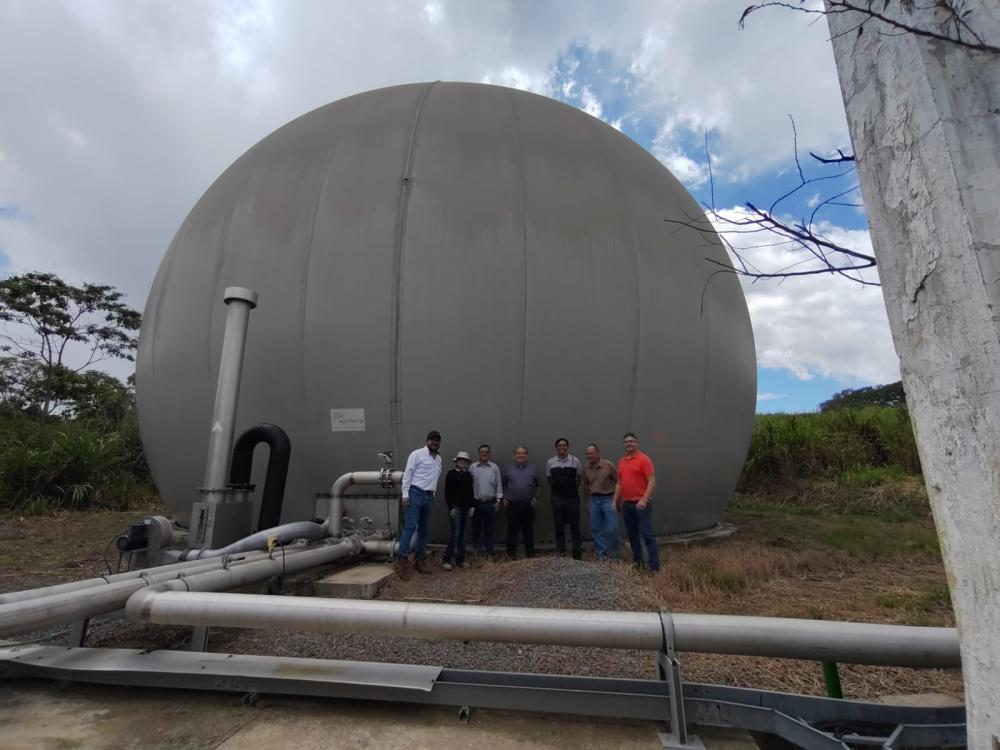Decision-makers and professionals from the agri-food sector learned, among other topics, how to manage organic farm waste to convert it into raw material for energy generation.

San José, 1 october 2024 (IICA) – With the aim of promoting the use of biodigestion technologies, sharing successful experiences, and fostering public policies that advance towards sustainable agri-food systems, the Inter-American Institute for Cooperation on Agriculture (IICA); the Network for Biodigesters in Latin America and the Caribbean (RedBioLAC); and the WISIONS of Sustainability program, from the Wuppertal Institute in Germany, launched the course “Application of Biodigestion for the Agroecological and Bioeconomic Transformation of Agri-food Systems.”
The course, aimed at decision-makers and professionals from the agri-food sector in Argentina, Mexico, Colombia, Costa Rica, and Guatemala, provided tools for integrating biodigestion technologies into family farming, promoting sustainability and resilience in the face of climate change.
“Biogas and gaseous bioenergies play a fundamental role in the decarbonization of the energy sector. Biogas production must increase fifteenfold by 2050 to contribute to the fulfillment of the Paris Agreement, which seeks to keep the global average temperature increase below two degrees Celsius,” stated Agustín Torroba, a biofuels specialist at IICA.
The course attracted more than 90 participants from across the Latin American region, including producers, policymakers, regulators, and researchers.
Willigton Ortiz, project coordinator for WISIONS of Sustainability, the institution providing financial support for the initiative, noted that the course “represents the materialization of years of work. The interest shown by both authorities and private actors highlights the potential replicability of this activity.”
Experiences and networking
“This program has not only strengthened the technical capacities of its participants, but it has also generated a valuable exchange of experiences and the creation of a network that promotes the use of biodigestion, laying the groundwork for progress in its implementation and contributing to the development of more resilient and sustainable agri-food systems,” said Celestina Brenes, IICA specialist and project coordinator.

During the course, field trips were conducted in Guatemala, Costa Rica, and Colombia, which included practical workshops at model farms that are already implementing biodigestion technologies.
“This course and the demonstration tours have been a significant advancement in the dissemination and adoption of biodigestion technologies in the region,” explained Yudtanduly Acuña, general project coordinator at RedBioLAC.
The first tour took place at the Central Agrícola farm in Guatemala, where opportunities and development benefits from the implementation of biodigestion in agricultural practices and organic waste treatment were highlighted, with an emphasis on the direct benefits for producers adopting it.
The next workshop was held at the Biamonte Agroecological Farm in Costa Rica, with the support of Viogaz, a local company specializing in the design, manufacture, and distribution of biodigesters. Topics covered included the evolution of biodigesters, research projects in collaboration with public universities, and relevant regulations regarding biodigestion. Additionally, there were demonstrations on the application of biodigesters used for renewable energy generation.
Finally, the tour concluded at Finca Líder in Colombia with technical support from Sistema Bio. This farm is an example of sustainability, using biodigesters to convert organic waste into renewable energy, improving soil quality, and reducing odors, making it a model of sustainable and innovative pig farming that positively impacts the environment and job creation.
These field trips facilitated contact between producers, enabling visits to other productive areas and knowledge exchange.
“This interaction between students not only enriches the learning experience but also fosters the creation of networks and the exchange of best practices,” said Gloria Pedraza, coordinator of interinstitutional relations at RedBiolac.
Walfer Martínez, one of the course participants, found the experience to be highly enriching: “Additionally, I had the opportunity to learn about other biodigester experiences, such as that of Arnoldo Castillo, who is also a course participant and has a plot located in the border area of Guatemala.”
More information:
Institutional Communication Division.
comunicacion.institucional@iica.int











